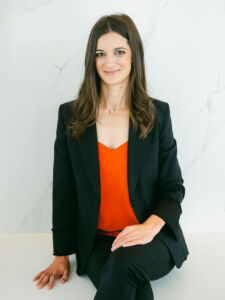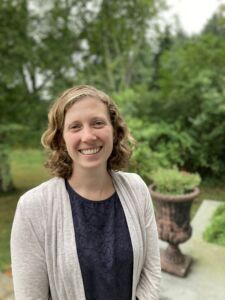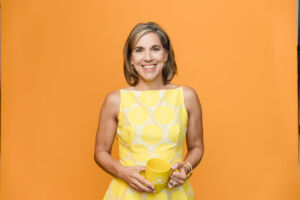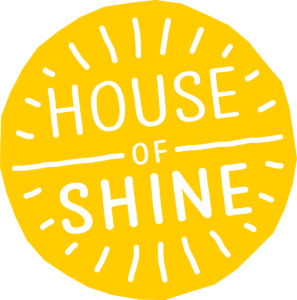Pre-Conference Workshops – 2024 ICGS Conference
Conference Overview | Registration | Schedule of Programming | Pre-Conference Workshops | Networking Opportunities | Keynote Speakers | Breakout Sessions | INSPIRE! Sessions | Post-Conference School Visits | Hotel Accommodations | While You’re in Baltimore | Sponsors | Participating Schools/Organizations

Registration for these opportunities is included on the Conference registration form. If you’ve already registered for the Conference and you’d like to add a Pre-Conference Workshop to your experience, please contact Kathleen Osborne to register.
Burn In, Not Out: How to Enhance and Propagate Well-Being to Fuel Student Success

It’s common for high-performing educators to experience cynicism, 
Join award-winning educator Julia Pool, founder of Burn-in Mindset, as she presents evidence-based burn-in strategies from the field of Positive Psychology as well as findings from the ICGS-commissioned study, “The Positive Effects of the Girls’ School Environment: An Analysis of PISA Data.” During this session, participants will gain actionable and sustainable tools for building well-being and transferring it to their students and school community.
This session is recommended for educators and school leaders on a trajectory to advance in the field and build influence. Participants will have an opportunity to gather in small groups based on school type (e.g., boarding, religiously affiliated/faith based, lower/junior, middle, and upper/high schools) to learn and practice with colleagues from like schools.
Let’s Discuss Discussion: Building a Whole-School Skills-Based Approach to Our Conversation Crisis

This session is recommended for Academic Leaders (e.g. Humanities Department Chairs, Deans of Teaching & Learning, Directors of Studies, Division Heads, Assistant Heads for Academics, DEI Directors) to attend along with Humanities Teachers.

Designed to be part-case study, part-research exploration, and part-idea volcano, this three-hour pre-conference workshop will give ICGS Academic Leaders and Humanities Teachers a moment to step back and think deeply, together, about why and how our schools prepare students and teachers to engage in discussion: one of the most fundamental activities that takes place daily on our campuses. Together we’ll explore research on the challenges girls face in discussions, solutions for meeting those challenges, and case studies of how different schools have adapted those solutions to work in their own contexts.
We promise to stoke the conversation with well-curated materials, thoughtful people, and the kinds of questions you love digging into but that often get deprioritized amidst the daily grind. For example:
-
What is the purpose of discussion in school today? How does it relate to our mission statement? Our equity goals?
-
How can students use discussion skills to grow academically, socially, and emotionally? What are the challenges today’s students face when it comes to class discussion?
-
Where is discussion taught at my school, right now? What are the challenges today’s teachers face in teaching discussion skills?
-
If we were to write a Discussion Philosophy as a school, what values would be most important?
Emily Gromoll is the Director of Program for R.E.A.L.® Discussion, working with hundreds of teachers across the U.S. (and abroad!) to learn and adapt skill-based discussion techniques for their students. Before joining R.E.A.L.®, Emily served as an instructional coach and Director of Knowledge Development at Eskolta School Research and Design, where she developed expertise in adult learning. She coached teachers throughout NYC to design student engagement strategies and partnered with districts to launch professional learning networks. Prior to Eskolta, she served as a History Department Chair and teacher at an independent school. Emily holds a BA from Columbia University and Masters in Education Policy, Organization, and Leadership from Stanford University. She currently lives in New Jersey with her family – and thirty chickens.
Finding Your Shine in a Land Full of Mines

We’ve all heard that the key to a successful classroom and thriving school culture lies within the relationships that are built amongst students, teachers, and colleagues. But what exactly does that mean, and just how do we go about understanding our students and fellow staff members on a deeper, more meaningful level? The answer is simple: intentionality.

Dr. Claudia K. Beeny has spent more than thirty years working in education, igniting the energy and passion of others. After a successful career in higher education, Claudia left her role to start House of Shine, a non-profit that helps people discover what makes them unique and how to leverage their SHINE for the good of their community. At House of Shine, Claudia and her exceptional team are not content with merely writing K-12 curriculum or developing teaching tools. They are catalysts of transformation, orchestrating leadership experiences and crafting custom experiential workshops for people of all ages. Claudia’s profound insights extend beyond physical spaces. She shares her wisdom through her influential book, “What’s Your Shine? A Method for Discovering Who You Are and Why It Matters,” and her captivating podcast, providing invaluable tools for leading a life that radiates brilliance.